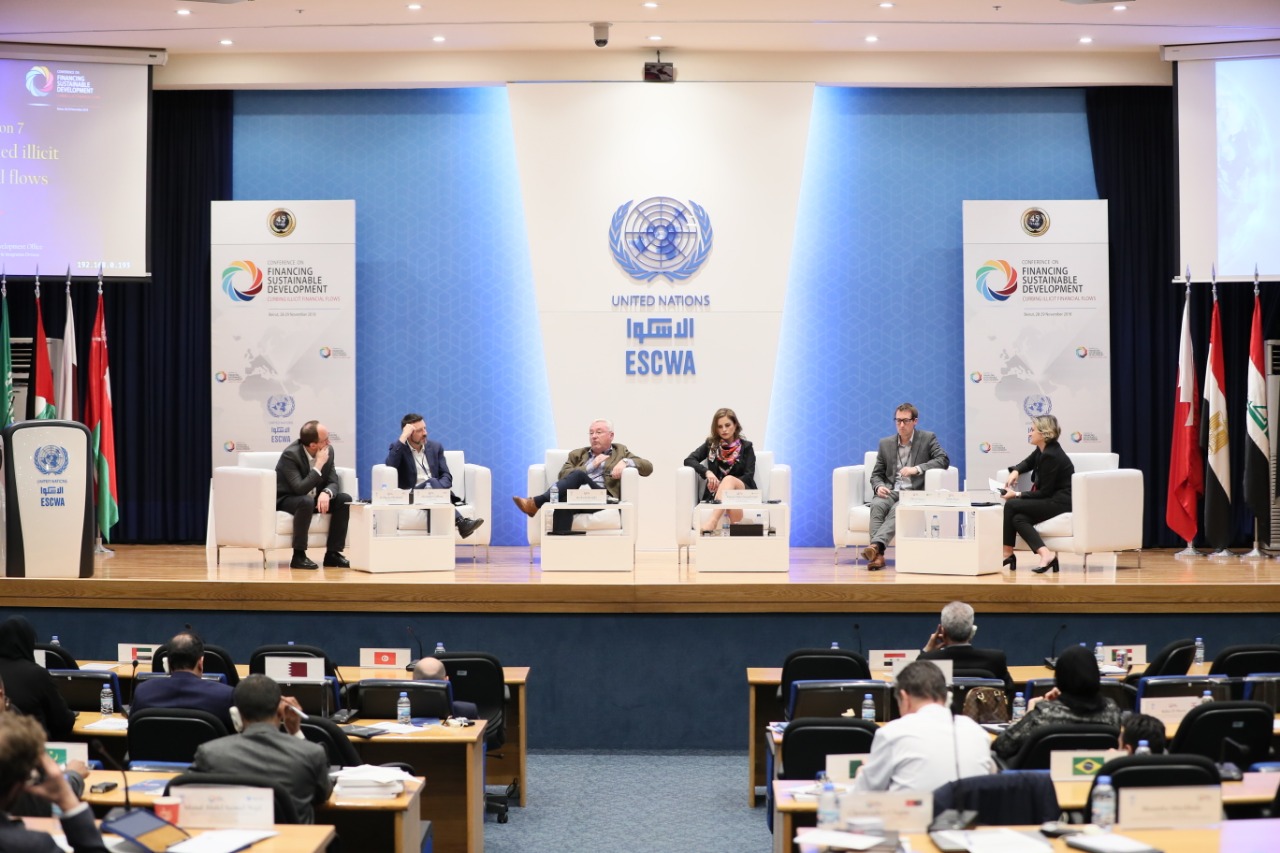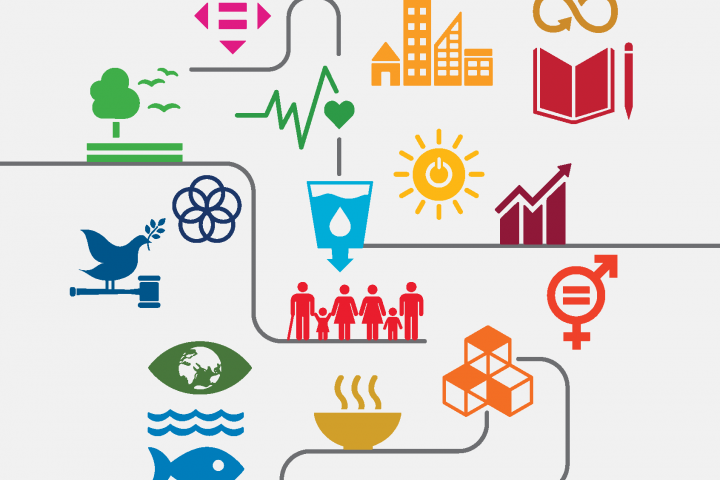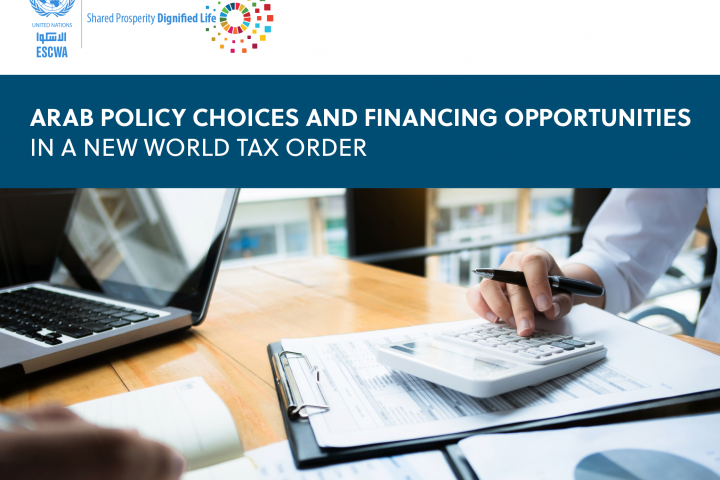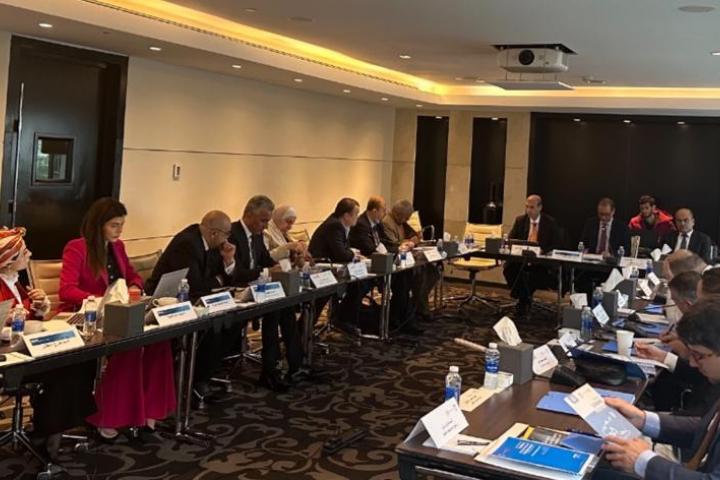Beirut, 5 December 2018 (Communication and Information Unit)--A multi-stakeholder “Beirut Consensus on Financing for Development” was adopted at the first International Conference on “Financing Sustainable Development” organized by the Beirut based United Nations Economic and Social Commission for Western Asia (ESCWA) on 28-29 November 2018 to influence regional and national contexts in view of financing the 2030 Agenda for Sustainable Development.
“The ‘Beirut Consensus’ was instigated by the mounting challenges facing developing and least developed countries in mobilizing the trillions needed to achieve the 2030 Agenda,” said Hicham Taha, Economic Advisor and Head of the Financing for Development Office at ESCWA. “This includes weaknesses in the global enabling environment, insufficient public and private finance to meet financing needs, policy and market failures across the financial system, and international economic conditions and policy approaches that do not advance sustainable development,” he added.
The Conference, dubbed by representatives of the International Civil Society Group on Financing for Development and International Development as a “successful, timely and important initiative by ESCWA”, offered an important milestone ahead of the 2019 ECOSOC Financing for Development (FfD) Forum and the High-Level Dialogue to be held under the aegis of the United Nations General Assembly in September 2019.
The Acting Executive Secretary of ESCWA Mr. Mounir Tabet, kicked-off the conference by mapping the FfD landscape highlighting that the Arab region continued to bear the brunt of 3Fs―financial constraints, funding shortfalls and financing inequalities.
The Conference succeeded in mobilizing affirmative financing action over the need to recalibrate regional FfD trajectories. Based on the findings of ESCWA first report on Illicit Financial Flows in the Arab Region, the Conference explored the paths towards deploying the necessary measures to combat Illicit Financial Flows (IFFs) that are undermining national efforts and regional propensities to finance the 2030 Agenda.
According to the report, average financial outflows associated with illicit financial flows in the form of trade misinvoicing are estimated at around $42.8 billion/year.
The Senior Vice President of the World Bank Group, Mr. Mahmoud Mohieldin, accentuated the need to step up action to mobilize additional development finance to serve the 2030 Agenda for Sustainable Development. He also emphasized the importance of improving the general environment of taxation and investment, as well as strengthening both the public and private sectors.
According to a new ESCWA report on the State of Financing Development in the Arab region, for every $1 gained from remittances, the Arab region loses $2.8, and for every $1 gained annually from external debt, it loses $1.5 on debt repayments. Also, if the current trends of net cross-border flows are maintained, the region would need $2.3 trillion in development finance to achieve the Sustainable Development Goals (SDGs) by 2030, in addition to the cost of the SDGs themselves previously estimated at $3.6 trillion.
While differentiating between legal and ethical trade, the Secretary-General of UNCTAD and the co-Chair of the UNSDG Strategic Financing Results Group Mr. Mukhisa Kituyi touched on the need to establish a more enabling and conducive global economic environment amidst the rising tide of trade and investment protectionism.
Representing the Prime Minister of Lebanon, Lebanese MP Bahia Al-Hariri spoke on the adverse implications of conflicts on financing sustainable development. “Stability is the key to achieving sustainable development and increasing investment,” she said.
The high-level segment also saw interventions from the Vice President of the Court of Cassation and the Representative of the Governor of the Central Bank of Egypt Mr. Ahmed Said Khalil, the Egyptian Minister of Finance Mr. Mohamed Maait (Chairman of the G77 & China), and the Lebanese Minister of Finance Mr. Ali Hassan Khalil, who highlighted challenges facing financing SDGs including conflict and displacement, and stressed the need for Arab countries to commit at the highest levels towards financing the global goals.
The impact of IFFs on the Arab region remains more severe given the scope and scale of prolonged conflicts, civil wars, reconstruction needs, development challenges and deficits, ESCWA new report says. With significant amounts of illicit capital moving across borders undetected, capital controls, trade and income taxes and other fiscal charges are circumvented, thereby stripping governments of legitimate revenues (direct and indirect taxes and fiscal charges) that could have been harnessed for sustainable development.
The Conference brought together members of the G77 and China, the largest coalition of developing countries in the United Nations, under the chairmanship of the Arab Republic of Egypt along with 37 international and regional organizations to recalibrate the trajectories of development finance and foster the transition from ‘funding to financing’ transformative change.
The Beirut Consensus captures the convergence reached over several prime priority areas, including global FfD systemic conditions; domestic resource mobilization issues, fiscal policy and tax reforms; domestic and international private financing; international development cooperation; multilateral and regional trade as means to finance development and debt sustainability imperatives for the Arab region.
Read more on: https://www.unescwa.org/fsd-2018
For more information:
Nabil Abu-Dargham, Head, ESCWA Communication and Information Unit
+961-70-993-144; email: dargham@un.org
Ms Rania Harb +961-70-008-879; email: harb1@un.org
Ms Mirna Mahfouz: +961-70-827-372; email: mahfouz@un.org




